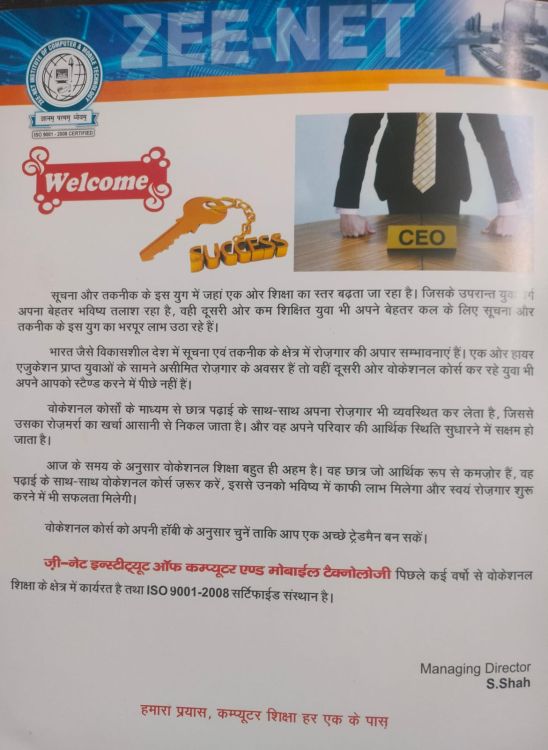The skill development at present is taking place mostly in the informal way, i.e. persons acquire skill at the work-place when they help their parents, relatives and employers etc. Such persons do not have a formal certificate and thus earn lower wages and are exploited by employers. They have come through informal system due to socio-economic circumstances of the family and the compulsions of earning a livelihood rather than attending a formal course. it will not only benefit the workforce to earn a decent living but also contribute to the national economy by better productivity of this workforce.
Another related problem to be tackled is large number of students drop outs (About 63% of the school students drop out at different stages before reaching Class-X)

Very few opportunities for skill development are available for the above referred groups (out of school youth & existing workers especially in the informal sector). Most of the existing Skill Development programmes are long term in nature. Poor and less educated persons cannot afford long term training programmes due to higher entry qualifications, opportunity cost etc. The key features of the new frame work for skill development are:
¹ Demand driven Short term training courses based on modular employable skills decided in consultation with Industry
¹ Flexible delivery mechanism (part time, weekends, full time)
¹ Different levels of programmes (Foundation level as well as skill up gradation) to meet demands of various target groups